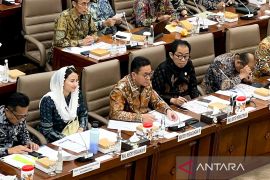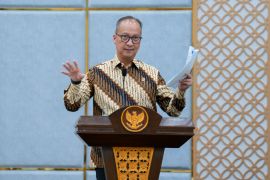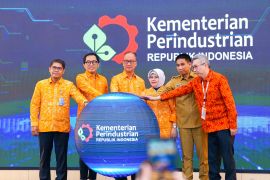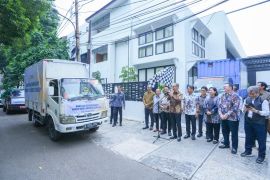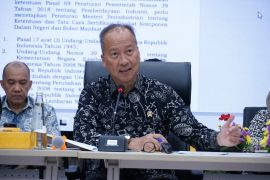The approach is said to be highly competitive, enable efficient energy use, support sustainable mobility, and facilitate automotive technology, he said on Wednesday.
"We will support the development of automotive technology and are committed to facilitating its policies through the concept of green mobility," he added.
According to the minister, the green mobility policy will prove more adaptive and sustainable for the national automotive industry, especially in responding to the rapid development of environmentally friendly automotive technology.
It will also allow efficient energy use, support population mobility, and protect automotive investment in Indonesia, he added.
The minister said that the concept takes the automotive investment in the country into account.
For example, the government is encouraging investors producing vehicles using internal combustion engine (ICE) technology by offering incentives for low-cost green car (LCGC) products and biofuel programs.
Kartasasmita informed that the government has also issued policies and incentives to encourage the creation of an electric vehicle ecosystem through PPNBM DTP incentives and the downstreaming of natural resources that support the EV battery industry.
In addition, the government is giving incentives for the production of hybrid vehicles, he said.
Of late, Indonesia has been preparing policies and incentives for investors who produce vehicles that run on hydrogen fuel cell technology.
"We will also continue to protect existing automotive investments in Indonesia," the minister said.
"As long as the investment in the automotive industry produces more environmentally friendly automotive products, is efficient in energy use, and supports community mobility, we will support them through the green mobility policy," he added.
He then highlighted the opportunity for growth in the Indonesian automotive market for domestic automotive products.
This is indicated by Indonesia's car ownership ratio, which is relatively low compared to that of neighboring ASEAN countries.
He informed that the ratio of four-wheeled vehicle ownership in Indonesia is just 99 units per thousand people. The Indonesian population reached 281 million in 2024.
In comparison, the ratio of four-wheeled vehicle ownership in Malaysia, which has a population of 35 million, is 490 units per thousand people.
Thailand also has a higher car ownership ratio than Indonesia. With a population of around 70 million, the country's car ownership ratio stands at 275 units per thousand people.
"Singapore has 211 units per thousand people, South Korea with 530 units per thousand people, and Japan has 670 units per thousand people," Kartasasmita said.
He added that the green mobility concept is expected to support the government's efforts to achieve the net-zero emissions (NZE) target in the manufacturing sector by 2050.
Related news: Investments in automotive industry up 43% in 5 yrs: govt
Related news: EV development significant for economy, environment: Minister
Related news: Indonesian govt to offer incentives for hybrid cars amid EV push
Translator: Ahmad Muzdaffar, Resinta Sulistiyandari
Editor: Azis Kurmala
Copyright © ANTARA 2025



